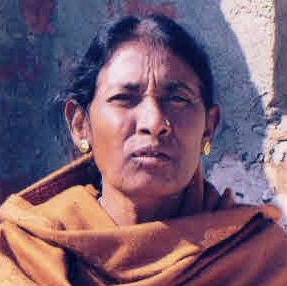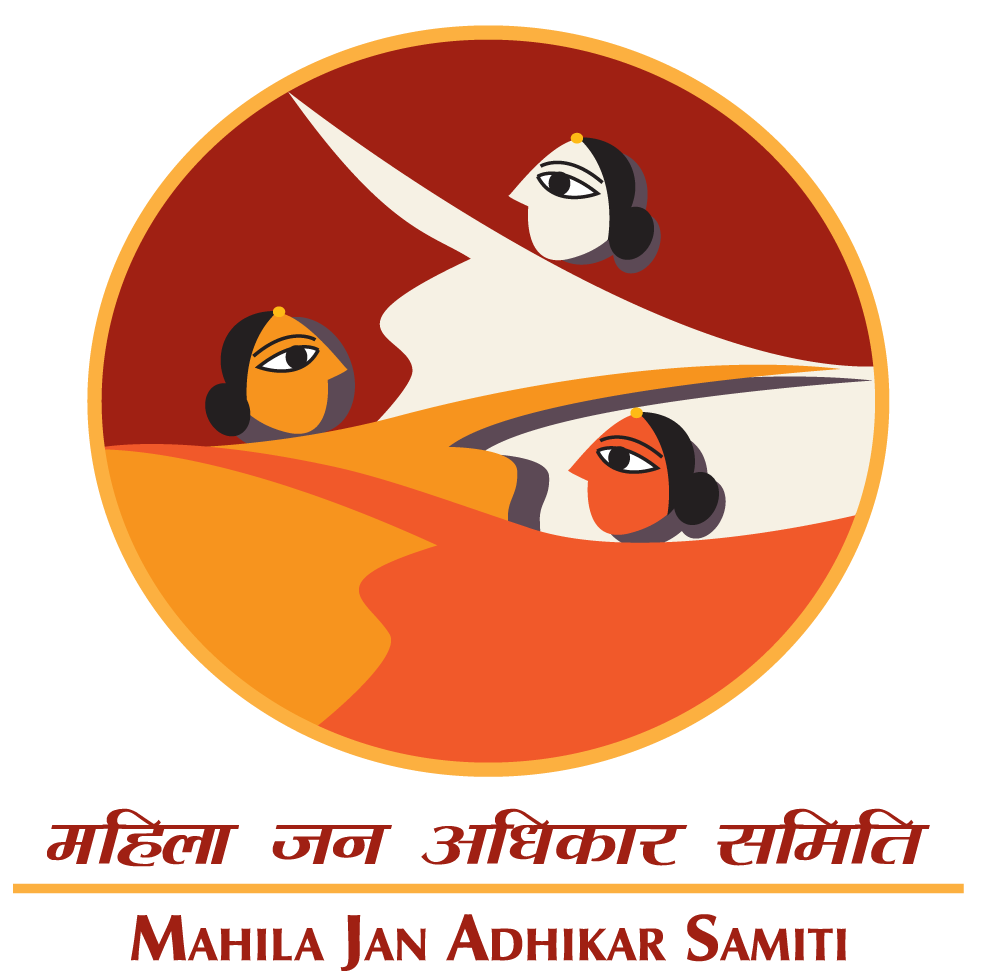The Success Story of
Dhapu Meena

Chaggi Bai was a member of the Bhil community and lived in Bandiya village off the Ajmer-Jaipur highway where she worked hard as a labourer to support her three children. She had separated from her husband due to constant harassment. She had to struggle for everything, right from getting food and water for her family to survival as a woman from a lower caste. She was inspired by the women’s movement in Rajasthan and would often go for social work in her neighbouring village Rasoolpura. Then came the reservation for women under the Panchayati Raj system in 1995 and Chaggi was made the sarpanch of the Rasoolpura village panchayat.
Ceremonial heads have been very common in such panchayats, especially since the women’s reservation bill was enforced. Men of the village would make a woman the village sarpanch and govern the village themselves. Chaggi was a strange choice for a sarpanch because she was literate, despite her background, and was involved in social work.
Chaggi herself did not want to become the sarpanch for she was aware of the politics behind the post. She had made it clear that she won’t work under external pressure and would do what she feels is right. She won on a general women’s seat, despite belonging to the Bhil community. This was not acceptable to others and a lot of tension brewed on this issue right after she won the elections.
Chaggi was true to her word, though the men of her village weren’t. She was not allowed to speak at the first village assembly after her election. She had assembled many women and people from the scheduled caste and scheduled tribe for the meeting. But a man belonging to the Rawat community, which forms a majority in Rasoolpura, dismissed them. Further, her capability as the sarpanch was challenged by the earlier sarpanch, Shravan Singh, who openly abused her and challenged all her supporters. He declared that he would go to any extent to oppose and harm the people who supported Chaggi and her ventures.
The panchayat secretary would carry on all the work on his own. He would get the cheque signed by her for withdrawing money but would never give her any accounts or show the record. Chaggi wrote to the district authorities about the secretary, yet no one paid attention. She decided to work on her own thereafter.
She collected the down-trodden groups in the community to help her. She circulated an agenda and called for a village meeting to discuss local development plans. This was the first opportunity she created to address people. However, even here, she was challenged by Shravan Singh who came to the meeting and insulted her again. He forcibly presided over the meeting and decided on all the plans without even consulting her. And, no one supported her fearing Shravan Singh. She left the meeting which she had organised without putting forward her view.
Everyday became a new challenge for her, every meeting turned into a war. She was threatened regularly. Not only her safety but also that of her three children was at stake. Yet, she did not give up. Her humiliation continued at all meetings. Shravan Singh provoked people so much that they would come in the panchayat meetings to beat her. They would abuse her in the worst possible language. They also ill-treated other people of her community.
However, Chaggi continued to sign the cheques and vouchers of the panchayat, so that work would not be affected amidst such politics.
When some people approached her to collect the payment for drought relief work, she realised that the money was not being used for any development purpose. Chaggi was told that the secretary did not pay them by saying that she had not signed the required vouchers. She went to question the village panchayat council on this. Instead, she was served a notice stating that she owned a huge sum to the council. Chaggi was shocked. But she decided to retaliate. She mobilised people against this injustice by narrating this incident. She approached the Collector, the head of the District Council and the Commissioner with the people who were refused payment by the secretary. This strategy worked and the issue came up in the local newspapers.
The secretary was disturbed by her courage. He came to her and said that he wouldn’t let her confront any problem on this account. She demanded an explanation from him which disclosed many such issues where payments were not made to the concerned people. Her efforts not only brought prominence to the issue but also led to various First Information Reports being filed against him.
Chaggi continued to work for her village despite hurdles. She led the local women to demonstrate against an illegal liquor store maintained by the deputy sarpanch, Mohan Singh. The deputy sarpanch belonged to the Rawat community. He was furious and began to abuse and beat her. However, with the help of the women she reached the police station and filed a complaint against the deputy sarpanch. He asked her to withdraw the charges but she refused.
This was too much for the pride of the Rawat community. Even the people who had helped her during elections now turned hostile. They hid the files concerning all illegal transactions and did not let her enter the council office. They even tried to assault her. When nothing worked, nine of the twelve members of the council met privately and passed a no confidence motion against her. Chaggi was removed from the post in 1998 with the charge that she ignored development-oriented work.
